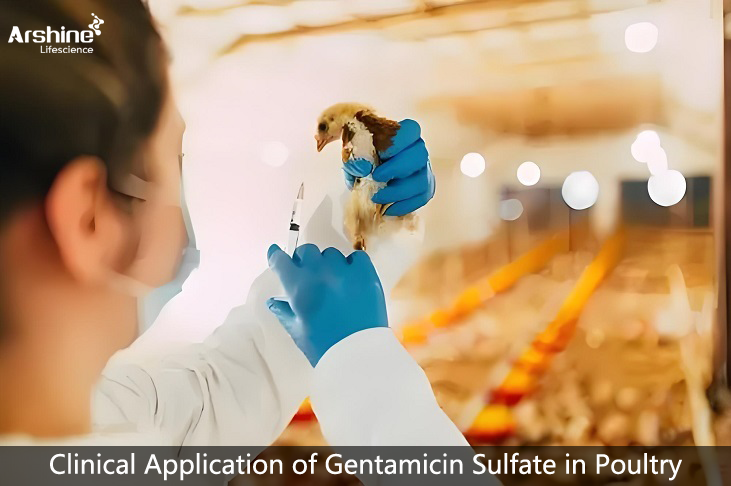Arshine Gentamicin sulfate is a second-generation aminoglycoside antibiotic with a broad spectrum of antibacterial activity. It belongs to the same class of antibiotics as neomycin sulfate, kanamycin sulfate, and monobactam. However, gentamicin sulfate is significantly more sensitive and safer in clinical use compared to other aminoglycosides. Therefore, its usage, along with other antibiotics like spectinomycin and ampicillin, is on the rise in the treatment protocols for respiratory diseases and Mycoplasma infections.
Gentamicin sulfate exhibits both bacteriostatic and bactericidal effects against various Gram-negative and Gram-positive bacteria, including Escherichia coli, Salmonella, Mycoplasma, Pseudomonas aeruginosa, and Staphylococcus aureus.
Therapeutic Effects
Gentamicin sulfate injections are particularly effective for treating conditions caused by bacteria, including sepsis, lower respiratory tract infections, reproductive system infections, abdominal infections, and skin and soft tissue infections. In poultry, it is primarily used for bacterial and mycoplasmal diseases. For instance:
- When combined with cefquinome injection or cefotaxime hydrochloride injection, gentamicin sulfate is used to treat bacterial and mycoplasmal sepsis and lower respiratory tract infections (such as airsacculitis and embolism).
- It can be combined with detoxifying agents to treat Mycoplasma synoviae infections (commonly known as synovitis) in chickens.
- Gentamicin sulfate can also be administered alone to treat diseases caused by E. coli and Salmonella, leading to sepsis.
Applications:
- Effective for treating diseases such as septicemia and bacteremia caused by bacteria.
- Suitable for treating respiratory infections and peritonitis caused by sensitive bacteria.
- In combination with amoxicillin or amoxicillin plus colistin, it can be used to treat urinary tract infections caused by sensitive bacteria.
- In combination with lincomycin hydrochloride, it can treat necrotizing dermatitis and enterococcus infections.
- Intramuscular injection along with lincomycin and metronidazole can reduce the incidence of infections post-castration in male chickens.
- Injection with transfer factors and ligosamine can be used to treat joint and footpad swelling caused by synovitis in chickens.
Precautions:
- Vitamin E can counteract the nephrotoxicity of gentamicin, reducing kidney damage when used together.
- When combined with fluoroquinolone antibiotics, gentamicin shows synergistic effects, but toxicity increases, necessitating a reduction in dosage.
- Borneol can enhance the concentration of gentamicin in the bloodstream and increase the amount that enters the brain, improving efficacy while reducing the dosage required.
- The combination of gentamicin with lincomycin demonstrates synergistic effects against streptococci but may increase gentamicin's nephrotoxicity, leading to acute renal failure.
- Gentamicin should not be used concurrently with other aminoglycoside antibiotics, as it does not enhance efficacy but increases toxicity.

